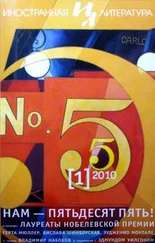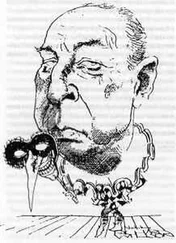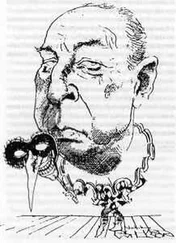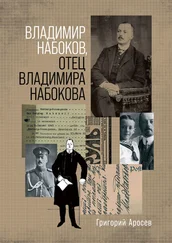Владимир Набоков - Vladimir Nabokov Pnin
Здесь есть возможность читать онлайн «Владимир Набоков - Vladimir Nabokov Pnin» весь текст электронной книги совершенно бесплатно (целиком полную версию без сокращений). В некоторых случаях можно слушать аудио, скачать через торрент в формате fb2 и присутствует краткое содержание. Жанр: Классическая проза, на английском языке. Описание произведения, (предисловие) а так же отзывы посетителей доступны на портале библиотеки ЛибКат.
- Название:Vladimir Nabokov Pnin
- Автор:
- Жанр:
- Год:неизвестен
- ISBN:нет данных
- Рейтинг книги:4 / 5. Голосов: 2
-
Избранное:Добавить в избранное
- Отзывы:
-
Ваша оценка:
- 80
- 1
- 2
- 3
- 4
- 5
Vladimir Nabokov Pnin: краткое содержание, описание и аннотация
Предлагаем к чтению аннотацию, описание, краткое содержание или предисловие (зависит от того, что написал сам автор книги «Vladimir Nabokov Pnin»). Если вы не нашли необходимую информацию о книге — напишите в комментариях, мы постараемся отыскать её.
Vladimir Nabokov Pnin — читать онлайн бесплатно полную книгу (весь текст) целиком
Ниже представлен текст книги, разбитый по страницам. Система сохранения места последней прочитанной страницы, позволяет с удобством читать онлайн бесплатно книгу «Vladimir Nabokov Pnin», без необходимости каждый раз заново искать на чём Вы остановились. Поставьте закладку, и сможете в любой момент перейти на страницу, на которой закончили чтение.
Интервал:
Закладка:
A sense of being late for some appointment as odiously exact as school, dinner, or bedtime added the discomfort of awkward haste to the difficulties of a quest that was grading into delirium. The foliage and the flowers, with none of the intricacies of their warp disturbed, appeared to detach themselves in one undulating body from their pale-blue background which, in its turn, lost its papery flatness and dilated in depth till the spectator's heart almost burst in response to the expansion. He could still make out through the autonomous garlands certain parts of the nursery more tenacious of life than the rest, such as the lacquered screen, the gleam of a tumbler, the brass knobs of his bedstead, but these interfered even less with the oak leaves and rich blossoms than would the reflection of an inside object in a window-pane with the outside scenery perceived through the same glass. And although the witness and victim of these phantasms was tucked up in bed, he was, in accordance with the twofold nature of his surroundings, simultaneously seated on a bench in a green and purple park. During one melting moment, he had the sensation of holding at last the key he had sought; but, coming from very far, a rustling wind, its soft volume increasing as it ruffled the rhododendrons--now blossomless, blind--confused whatever rational pattern Timofey Pnin's surroundings had once had. He was alive and that was sufficient. The back of the bench against which he still sprawled felt as real as his clothes, or his wallet, or the date of the Great Moscow Fire--1812.
A grey squirrel sitting on comfortable haunches on the ground before him was sampling a peach stone. The wind paused, and presently stirred the foliage again.
The seizure had left him a little frightened and shaky, but he argued that had it been a real heart attack, he would have surely felt a good deal more unsettled and concerned, and this roundabout piece of reasoning completely dispelled his fear. It was now four-twenty. He blew his nose and trudged to the station.
The initial employee was back. 'Here's your bag,' he said cheerfully. 'Sorry you missed the Cremona bus.'
'At least'--and what dignified irony our unfortunate friend tried to inject into that 'at least'--'I hope everything is good with your wife?'
'She'll be all right. Have to wait till tomorrow, I guess.'
'And now,' said Pnin, 'where is located the public telephone?'
The man pointed with his pencil as far out and sideways as he could without leaving his lair. Pnin, bag in hand, started to go, but he was called back. The pencil was now directed streetward.
'Say, see those two guys loading that truck? They're going to Cremona right now. Just tell them Bob Horn sent you. They'll take you.'
3
Some people--and I am one of them--hate happy ends. We feel cheated. Harm is the norm. Doom should not jam. The avalanche stopping in its tracks a few feet above the cowering village behaves not only unnaturally but unethically. Had I been reading about this mild old man, instead of writing about him, I would have preferred him to discover, upon his arrival to Cremona, that his lecture was not this Friday but the next. Actually, however, he not only arrived safely but was in time for dinner--a fruit cocktail, to begin with, mint jelly with the anonymous meat course, chocolate syrup with the vanilla ice-cream. And soon afterwards, surfeited with sweets, wearing his black suit, and juggling three papers, all of which he had stuffed into his coat so as to have the one he wanted among the rest (thus thwarting mischance by mathematical necessity), he sat on a chair near the lectern, while, at the lectern, Judith Clyde, an ageless blonde in aqua rayon, with large, flat cheeks stained a beautiful candy pink and two bright eyes basking in blue lunacy behind a rimless pince-nez, presented the speaker: 'Tonight,' she said, 'the speaker of the evening--This, by the way, is our third Friday night; last time, as you all remember, we all enjoyed hearing what Professor Moore had to say about agriculture in China. Tonight we have here, I am proud to say, the Russian-born, and citizen of this country, Professor--now comes a difficult one, I am afraid--Professor Pun-neen. I hope I have it right. He hardly needs any introduction, of course, and we are all happy to have him. We have a long evening before us, a long and rewarding evening, and I am sure you would all like to have time to ask him questions afterwards. Incidentally, I am told his father was Dostoyevsky's family doctor, and he has travelled quite a bit on both sides of the Iron Curtain. Therefore I will not take up your precious time any longer and will only add a few words about our next Friday lecture in this programme. I am sure you will all be delighted to know that there is a grand surprise in store for all of us. Our next lecturer is the distinguished poet and prose writer, Miss Linda Lacefield. We all know she has written poetry, prose, and some short stories. Miss Lacefield was born in New York. Her ancestors on both sides fought on both sides in the Revolutionary War. She wrote her first poem before graduation. Many of her poems--three of them, at least--have been published in Response, A Hundred Love Lyrics by American Women. In 1932 she received the cash prize offered by--'
But Pnin was not listening. A faint ripple stemming from his recent seizure was holding his fascinated attention. It lasted only a few heartbeats, with an additional systole here and there--last, harmless echoes--and was resolved in demure reality as his distinguished hostess invited him to the lectern; but while it lasted, how limpid the vision was! In the middle of the front row of seats he saw one of his Baltic aunts, wearing the pearls and the lace and the blonde wig she had worn at all the performances given by the great ham actor Khodotov, whom she had adored from afar before drifting into insanity. Next to her, shyly smiling, sleek dark head inclined, gentle brown gaze shining up at Pnin from under velvet eyebrows, sat a dead sweetheart of his, fanning herself with a programme. Murdered, forgotten, unrevenged, incorrupt, immortal, many old friends were scattered throughout the dim hall among more recent people, such as Miss Clyde, who had modestly regained a front seat. Vanya Bednyashkin, shot by the Reds in 1919 in Odessa because his father had been a Liberal, was gaily signalling to his former schoolmate from the back of the hall. And in an inconspicuous situation Dr Pavel Pnin and his anxious wife, both a little blurred but on the whole wonderfully recovered from their obscure dissolution, looked at their son with the same life-consuming passion and pride that they had looked at him with that night in 1912 when, at a school festival, commemorating Napoleon's defeat, he had recited (a bespectacled lad all alone on the stage) a poem by Pushkin.
The brief vision was gone. Old Miss Herring, retired Professor of History, author of Russia Awakes (1922), was bending across one or two intermediate members of the audience to compliment Miss Clyde on her speech, while from behind that lady another twinkling old party was thrusting into her field of vision a pair of withered, soundlessly clapping hands.
Chapter Two
1
The famous Waindell College bells were in the midst of their morning chimes.
Laurence G. Clements, a Waindell scholar, whose only popular course was the Philosophy of Gesture, and his wife Joan, Pendelton '30, had recently parted with their daughter, her father's best student: Isabel had married in her junior year a Waindell graduate with an engineering job in a remote Western State.
The bells were musical in the silvery sun. Framed in the picture window, the little town of Waindell--white paint, black pattern of twigs--was projected, as if by a child, in primitive perspective devoid of aerial depth, into the slate-grey hills; everything was prettily frosted with rime; the shiny parts of parked cars shone; Miss Dingwall's old Scotch terrier, a cylindrical small boar of sorts, had started upon his rounds up Warren Street and down Spelman Avenue and back again; but no amount of neighbourliness, landscaping, and change-ringing could soften the season; in a fortnight, after a ruminant pause, the academic year would enter its most winterly phase, the Spring Term, and the Clementses felt dejected, apprehensive, and lonely in their nice old draughty house that now seemed to hang about them like the flabby skin and flapping clothes of some fool who had gone and lost a third of his weight. Isabel was so young after all, and so vague, and they really knew nothing about her in-laws beyond that wedding selection of marchpane faces in a hired hall with the vaporous bride so helpless without her glasses.
Читать дальшеИнтервал:
Закладка:
Похожие книги на «Vladimir Nabokov Pnin»
Представляем Вашему вниманию похожие книги на «Vladimir Nabokov Pnin» списком для выбора. Мы отобрали схожую по названию и смыслу литературу в надежде предоставить читателям больше вариантов отыскать новые, интересные, ещё непрочитанные произведения.
Обсуждение, отзывы о книге «Vladimir Nabokov Pnin» и просто собственные мнения читателей. Оставьте ваши комментарии, напишите, что Вы думаете о произведении, его смысле или главных героях. Укажите что конкретно понравилось, а что нет, и почему Вы так считаете.










